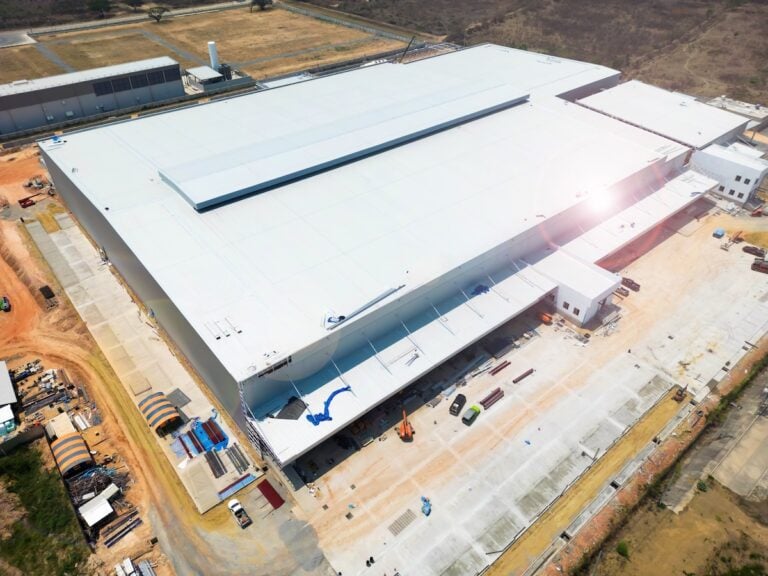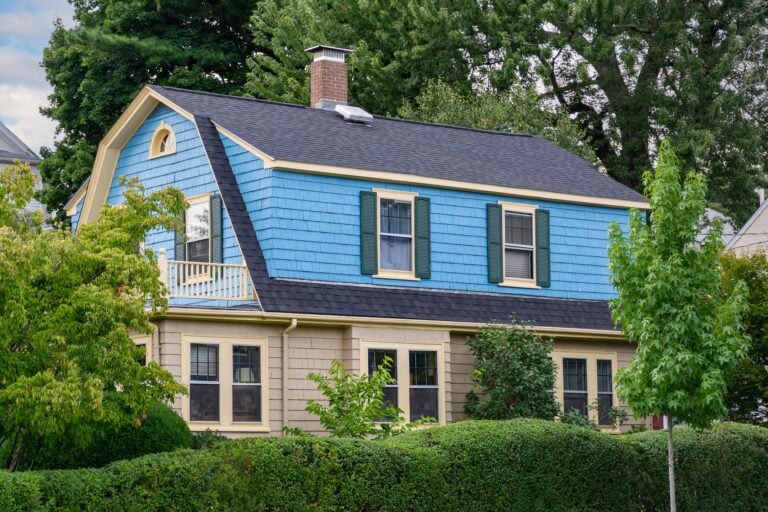If you’ve ever wondered “how long does a metal roof last?”, you’re not alone. Homeowners across the U.S. are increasingly choosing metal roofs for their durability, energy efficiency, and modern style. But before investing, it’s important to know how long you can expect your roof to protect your home, what factors influence its lifespan, and when replacement becomes necessary.
This blog will break down everything you need to know about the longevity of metal roofs, how they compare to other materials, and signs that it may be time for professional replacement.
Key Takeaways
- A well-installed metal roof can last 40–70 years, depending on the material and conditions.
- Lifespan is influenced by climate, maintenance, and installation quality.
- Metal roofs often outlast asphalt shingles by decades.
- Replacement becomes necessary when corrosion, leaks, or structural damage occur.
- Professional installation is essential DIY efforts can lead to expensive problems later.
Overview
Metal roofing is often considered one of the most long-lasting options for residential and commercial buildings. Unlike traditional shingles, which may need replacing every 15–25 years, metal roofs can protect your home for multiple decades.
This blog explores three key areas:
- Lifespan of metal roofs and the factors that affect it.
- Durability in different conditions, including storms, snow, and heat.
- Signs you may need to replace your roof, plus why professional service is the safest route.
Choosing a physiotherapy clinic in Pointe Claire requires looking at several key factors. Check the qualifications and experience of the therapists, their specific expertise, and the clinic’s treatment philosophy. The best clinics do a full assessment, create a personalized plan, and use proven techniques. The facility should be clean and well-equipped, with helpful staff. The goal is to find a clinic that empowers you with knowledge and helps you achieve lasting physical health.

How Long Does a Metal Roof Last?
One of the main reasons homeowners ask about metal roofing is its impressive longevity. Depending on the type of metal, a roof can last anywhere from 40 years to 70 years or more. For example:
- Galvanized steel roofs: Average 40–50 years.
- Aluminum roofs: Typically 50+ years, highly resistant to corrosion.
- Copper or zinc roofs: Can last over 70 years with proper care.
By contrast, asphalt shingles usually last only 15–20 years before replacement is necessary.
This is why roofing specialists often say the answer to “how long does a metal roof last” depends heavily on both the material choice and the installation quality.
Factors That Influence Lifespan
Climate Conditions
Weather plays a massive role. In areas with heavy snow or salt air near coastlines, some metals may corrode faster without protective coatings. Meanwhile, homes in dry climates can see metal roofs last decades longer.
Installation Quality
Even the best material can fail if installed poorly. Seams, flashing, and fasteners must be properly handled by roofing experts.
Maintenance Practices
Metal roofs require minimal upkeep, but occasional inspections are still needed. Clearing debris and checking for loose panels once or twice a year can extend life expectancy.
Durability Compared to Other Roofing Materials
One reason people ask “how long does a metal roof last” is to compare it against alternatives.
- Asphalt shingles: 15–25 years.
- Wood shakes: 20–30 years (but vulnerable to fire and rot).
- Clay tiles: 50 years (heavy and expensive to repair).
- Metal roofs: 40–70 years depending on type and care.
Clearly, metal roofing provides some of the best value when longevity is considered.
Signs It’s Time to Replace a Metal Roof
Even the strongest roof won’t last forever. Here are key indicators that replacement may be necessary:
- Corrosion or rust spots spreading across panels.
- Leaks appearing despite prior repairs.
- Loose fasteners, warped panels, or visible structural damage.
- Widespread fading or coating breakdown.
Attempting a do-it-yourself fix on these issues often leads to bigger problems. Roof replacement should always be handled by trained professionals with proper tools and safety knowledge.
Why Professional Installation Matters
Metal roofing may seem simple, but installation is far from easy. Incorrectly sealed seams or poorly aligned panels can shorten the lifespan by decades. That’s why hiring a licensed roofing company is crucial.
At Kornerstone Roofing, 15 Wood Rd, Unit 100, Round Lake, NY 12151, United States, our team specializes in long-lasting, precision metal roofing. We use proven techniques and high-quality materials to protect your home for the long term. Call us today at (518) 555-1234 to learn more about your options.

Conclusion
Metal roofs are built to last often several decades longer than shingles or wood alternatives. Their durability, low maintenance, and aesthetic appeal make them a smart investment for many homeowners. Still, the question isn’t just “how long does a metal roof last”, but whether it’s properly installed and maintained.
At Kornerstone Roofing, we help homeowners protect their biggest investment with professional, reliable metal roof installations and replacements..
Wondering exactly how long does a metal roof last on your home? Let our experts inspect your property and give you a clear answer without the risks of DIY guesswork.
FAQs
Q: How long does a metal roof last compared to shingles?
A: Metal roofs can last 40–70 years, while asphalt shingles often need replacing every 15–20 years.
Q: Do metal roofs require a lot of maintenance?
A: Very little. An annual inspection and occasional debris removal are usually sufficient.
Q: Can I install a metal roof myself?
A: It’s not recommended. Metal roof installation requires professional skill DIY attempts can lead to leaks, poor ventilation, and reduced lifespan.
Q: Does a metal roof make my home hotter?
A: No. In fact, many metal roofs reflect solar heat, which can help reduce cooling costs.
Q: How do I know if my roof needs replacing?
A: Look for leaks, corrosion, and damaged panels. A professional inspection can confirm whether repair or full replacement is needed.



